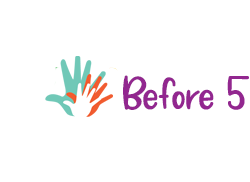According to Steven Vannoy, The 10 Greatest Gifts I Gave My Children, “The Gift of communication is not only a set of reading and writing skills, but also an attitude of listening and understanding, of honoring the communicator for his or her thoughts, attitudes, and ideas.”
I believe Steven hits the mark in his articulation regarding why effective communication is so critical when talking with others, especially children. Steven says, “Without the gift of communication, our children cannot express their natural creativity and imagination. Worse yet, they can never hear what others are saying to them. They resort to whining, complaining, or fighting because no one seems to hear them.”
If adults are distracted with something else or tuning out their child, most young children will often find undesirable ways to gain the attention they need/seek. We can’t always listen and respond 24/7 to our children. But what about when we can be engaged and listen to our children but choose not to? If we’re being honest here, we’re all guilty of doing this sometimes.
When our children feel unheard, it hurts. Feeling invisible doesn’t feel very good. What do we do when we can’t “act upon” what our child is telling us or asking for? Using our words and communicating at the moment typically works best; maybe something along the lines, “I understand that you want……, but we can’t do that right now, but this is what we can do.” You’ve acknowledged you’ve heard your child; you’ve communicated with them you can’t do that now/or maybe not at all, and lastly, you’ve explained to them what you can do. If your child is still unsettled if after doing this, now what? Your child may need to sit with their feelings of disappointment or sadness for a while; however, that looks like for your child. Teaching our children sometimes things don’t go how they want (and for us as well) and helping them learn how to handle big feelings is essential for children’s healthy emotional development.
The way we communicate verbally and nonverbally matters. Is our tone nice? Do we seem annoyed or bothered? Are we looking at them when we respond? Our children are listening to us and “reading” our body language as much as hearing what we say. Most young children need us to be very literal with our words (very clear in the words we use). I still giggle when I think back to when I told my then 3-year-old son we needed to hurry, so I needed him to “jump in the shower.” And this sweet little boy asked, “Can I just step in and not jump in the shower?” At three, our son needed my words to be simple and direct. “Great mommy lesson.”
Vannoy goes on to say “With the gift of communication, they(children) can express their own ideas as well as hear different ideas from others. They can express feelings as easily as facts. Their sphere of influence in the world has no limits. And in the practical world, it is probably the most essential business skill they will ever learn. It is a gift of enormous potential.”
Teaching children how to be effective communicators sets them up and prepares them better for life. What an incredible gift to give to your children!
Until next time, friends……



